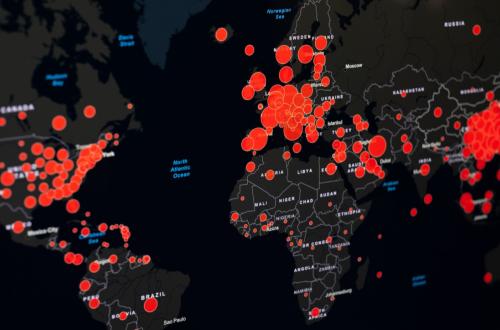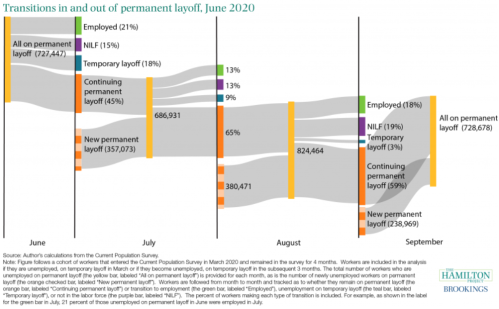Without a doubt, 2020 has been one of the most challenging—and frankly strange—years of our lifetimes. The year started with President Trump’s impeachment hearings and is ending with more than 300,000 Americans dead from COVID-19. The country is divided politically and economically, with no easy solutions to bring us together. The world is facing numerous challenges, from climate change to great power competition. As the year winds down, it is valuable to take a look back at the work we’ve done and let it be a guide for the work ahead.
Amid the pandemic, we at Brookings did what we’ve done so many times before when faced with a crisis—we got to work. Like many organizations across the country, we transitioned quickly to full-time remote work in March 2020 and adapted to the realities of working from home. In many ways, we’ve been fortunate at Brookings—we had tools at our disposal to make the transition fairly seamless. We had staff and expertise on hand to fully operationalize our remote events within days, ramp up production of cross-institutional projects addressing the pandemic, and begin providing policy recommendations to government leaders across the country and the world on alleviating the harms of the crisis.
COVID-19, the presidential election, and protests for racial justice dominated the headlines this year and Brookings experts had a lot to say on all of these topics. Overall, Brookings scholars and staff published over a thousand pieces of written content on COVID-19 and served as a critical nonpartisan source of analysis on global pandemic responses. Brookings experts did extensive work on understanding the recession and proposing policies to get the economy back on its feet, informed local and state recovery strategies through our Metro Recovery Watch, analyzed how the virus was impacting developing countries, and more. We capitalized on our deep policy expertise across Brookings in one of the year’s flagship projects, “Reopening America & the World,” a series of forward-looking proposals on how to rebuild and repair structural damage to global economies and societies.
On the election, we continued our Policy 2020 project to provide the American public with nonpartisan information about the issues that they most care about. Scholars published important explainers and big ideas on how to solve the country’s most entrenched problems—from getting rid of the Electoral College to reforming our military strategy in Afghanistan.
Amid America’s latest gut-wrenching reckoning with systemic racism, Brookings President John R. Allen made race, justice, and equity a new institutional research priority. Scholars across the institution realized early on in the pandemic that there were going to be deep disparities between death rates among different demographic and economic groups in America and around the world. These disparities, along with the culmination of centuries of social, political, and economic suppression, contributed to the intense backlash over the brutal murder of George Floyd and too many others at the hands of police. America and countries around the world marched for racial equality once again. Here at Brookings, our scholars continued their research and analysis on racial disparities, including writing proposals on how to ensure better police accountability and giving accounts of the ways that Black lives and properties have been devalued.
Elsewhere at Brookings, we launched our new Center for Sustainable Development, founded a new Initiative on Nonstate Armed Actors, celebrated the centennial of the 19th Amendment and reflected on the state of gender inequality today, continued work on the future of the American middle class and the growing influence of a Global China, and much more. Brookings also hosted a number of policymakers and experts, such as Federal Reserve Chair Jerome Powell to discuss the government’s fiscal response to the COVID-19 recession and former defense secretary Mark Esper and Chairman of the Joint Chiefs of Staff General Mark Milley to discuss how the U.S. military can be prepared for future crises.
2020 has been difficult, but there is light at the end of the dark tunnel. To help us get there, Brookings launched “Blueprints for American Renewal & Prosperity,” a series of innovative federal policy briefs and discussions to inform a new presidency and Congress amid compounding historic challenges facing the United States. So far, we’ve published solutions on racial justice and worker mobility and economic growth and dynamism. In the next few months, we will continue to publish policy briefs on global and domestic governance, international security, and climate and resilience.
In the coming year, getting COVID-19 under control will remain a top priority for the world. Brookings will continue its work on analyzing the spread of the virus across the U.S. and what it will take to recover from its social and economic toll. Also in 2021, experts will build on the important research and analysis they’ve done around technology issues, the growing existential threat of climate change, U.S. foreign policy in the Middle East, Asia, and Europe, and more.




Commentary
Reflections on a difficult year: How Brookings made an impact in 2020
December 28, 2020